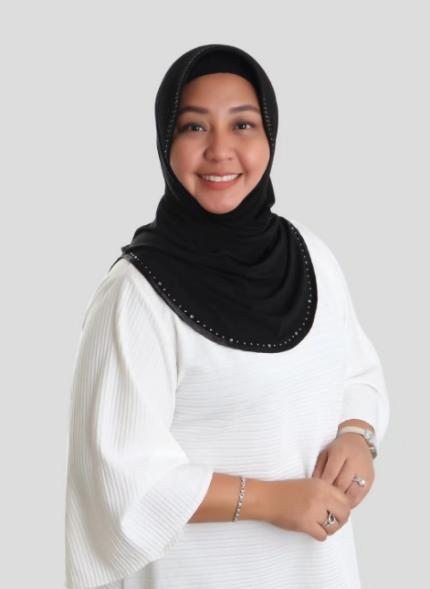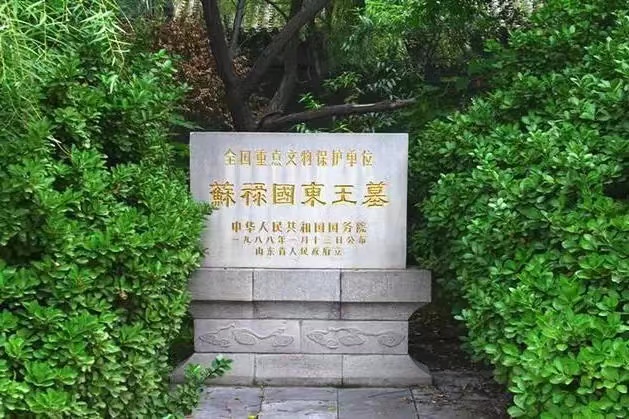Delegation of the Philippine International Center for Peace, Reconciliation and Development Visited the ICC
From September 12 to 16, at the invitation of the Foreign Affairs Office of Dezhou Municipal Government of Shandong Province and the Joint Council of the International Cooperation Center (ICC), a delegation led by Princess Jacel Kiram of the Sultanate of Sulu, President of the Philippine International Center for Peace, Reconciliation and Development (ICPRD), had a five-day trip in China for friendly exchanges. On September 15, the Philippine delegation visited the ICC and had a friendly conversation with representatives of the ICC in a seminar. Mr. Zhang Chongqing, member of the Strategy Advisory Committee of the ICC and Honorary President of the China Group Companies Association (CGCA), met with Princess Kiram and members of the delegation at the ICC’s Office at Jianguomen Outer Street, Beijing.
Mr. Zhang expressed his warm welcome to the delegation led by Princess Jacel Kiram, who came to China to pay homage to her ancestors and attend the commemorative activities and friendly exchanges on the “606th Anniversary of the East King of Sulu’s Visit to China” held in Dezhou, Shandong Province and Beijing. He pointed out that this visit has received great attention from the leaders of the two countries and people from all walks of life. Through recalling the great historical significance of Sulu King’s visit to China and the touching stories of the maritime Silk Road, China and the Philippines are able to find paths and approaches to maintain and consolidate the friendly relations, creating opportunities for the improvement and enhancement of China-Philippines friendship and cooperation in various fields. Princess Kiram harked back to the story of her ancestor Sulu King who led a mission of more than 340 people all the way north to visit Beijing during the Ming Dynasty 606 years ago. She thanked China for valuing and preserving the history of Sulu King’s visit to China and would like to further enhance the friendly relations between the Chinese and Philippine governments and peoples.
Consensus on the current international and regional situation has been reached during exchanges between the executives of the ICC and the ICPRD . Both sides agreed to establish a long-term exchange mechanism themed by the “Anniversary of the East King of Sulu’s Visit to China”. The two sides will strengthen coordination and cooperation in the areas such as policy consultancy, public diplomacy, people-to-people exchanges, economy, trade and investment. The participants believed that the history of Sulu King’s descendants thriving in China is a testimony to the splendor of the ancient maritime Silk Road and the amity and people-to-people ties between China and the Philippines, which deserves to be remembered by the two peoples forever. Amity and solidarity between the two peoples are crucial to building a community with a shared future for mankind. Standing on a new historical starting point, the two sides should eliminate barriers, deepen cooperation, and jointly promote China-Philippines relations to an even better future.
Representatives of the Chinese side, including Zhang Yu, Deputy Director of the Steering Committee of the ICC, Cheng Yu, Executive Secretary General of the ICC, Peng Jie, Deputy Director of the ICC’s External Exchange Committee, Guo Yaohua, member of the ICC’s External Exchange Committee, Wu Zhonglin, Executive Director of the Development Committee of the ICC and Deputy Director of the Overseas Chinese Affairs Committee of the China Zhi Gong Party Beijing Municipal Committee, and Xin Shaoxiong, Executive Deputy Director of the ICC’s Office, were present at the seminar. Members of the Philippine delegation include Marcelo Torres, member of the presidential campaign team of Philippine President Ferdinand Marcos Jr. and Chairman of the Philippine National Police Transformation and Development Advisory Group, Rhodora Poliquit, former Executive Director of Transnational Crime in the Office of the President of the Philippines and Special Projects Advisor to the ICPRD, Inier Candor, Secretary General of the ICPRD, Janice Oliva, former official of the Publicity Operations Department of the Office of the President of the Philippines and Public Relations Officer of the ICPRD, and Diana Suelto, writer and media person of the Philippine STAR newspaper.
At the invitation of the Joint Council of the ICC, Dai Huiquan, President of the Beijing Federation of Overseas Chinese Filipinos Returned Overseas Chinese Association, Yang Song, General Manager of the Overseas Market Investment and Development Department of the CCCC First Highway Engineering Co., Ltd., and Chen Hong, Head of Cooperation of the Marketing and Development Department of China Datang Group Overseas Investment Company Limited, participated in the seminar and delivered speeches respectively.
Related Information:
Princess of the Sultanate of Sulu

Princess Jacel Kiram
President of the Philippine International Center for Peace, Reconciliation and Development (ICPRD)
Princess Jacel Kiram, Sultan of Sulu, was born into the Philippine nobility as the daughter of Jamalul Kiram III and a descendant of the Eastern King of Sulu (who visited China in 1417 to meet the Yongle Emperor). Princess Kiram served as Chair of People’s Coalition for Peace and is currently the co-founder and President of Philippine International Center for Peace, Reconciliation and Development (ICPRD, formerly KIRAM), and Envoy of China-Philippines Friendship awarded by the ICC.
Sulu Princess Kiram has long been dedicated to the peace and reconciliation cause. She served as a resource speaker at Drug Control Programme Conference sponsored by the United Nations in Vienna, as the main representative of the Philippines to attend the “600th Anniversary of Sulu-China Friendship” celebration in Guangxi , and as Head of the Philippine delegation to attend the 19th World Festival of Youth and Students in Sochi in 2017. In addition, Princess Kiram was the President of the Philsilat Sports Association and the Deputy Chief Envoy of the Philippine delegation for the 2018 Asian Games. In June 2022, Princess Kiram was invited to the “Second Award for Promoting Philippines-China Understanding (APPCU)” ceremony co-organized by the Embassy of the People’s Republic of China in the Republic of the Philippines and the Association for Philippines-China Understanding (APCU) and was honored with the Outstanding Contributions Award. Philippine President Ferdinand Marcos Jr., former President Joseph Estrada, former President Gloria Macapagal Arroyo, and Mr. Huang Xilian, Chinese Ambassador to the Philippines, witnessed the award presentation.
History of the Sulu King’s Visit to China

The Sultanate of Sulu located at the Sulu Archipelago of today’s Philippines. Since the onset of ancient maritime Silk Road, the ancient Chinese have begun trading with the Sulu people by sea. In 1417, the East King of Sulu, accompanied by his family and officials, led a friendship mission over 340 people and traveled across mountains and seas to Beijing, where he had an audience with the Yongle Emperor of the Ming Dynasty (1403-1424). However, Sultan Paduka Batara unfortunately died in Dezhou, Shandong Province, on his way back the Sultanate of Sulu. The Yongle Emperor deeply mourned for his death and sent Chen Shiqi, Director of the Ministry of Rites, to Dezhou to hold a grand funeral for the Sulu King. The Emperor even wrote a eulogy himself and instructed people to erect a monument for the commemoration of the Sulu King, as well as bestowed a posthumous name — Gongding on him. In addition to build a grand tomb, the Emperor granted the Queen Consort Kamulin, the King’s two sons, Wenhali and Antulu, and ten retainers to stay in China and guard the King’s tomb. Considering their beliefs, the Emperor ordered three Muslim households namely the Xias, the Mas and the Chens to take care of the King’s family. Since then, the descendants of the King have settled down in China and flourished. During the Yongzheng period of the Qing Dynasty (1722-1735), the descendants of the Sulu King were formally registered as Chinese with “An” and “Wen” surnames and fully integrated into the Chinese civilization. By now, there are over 3700 descendants living in China.

